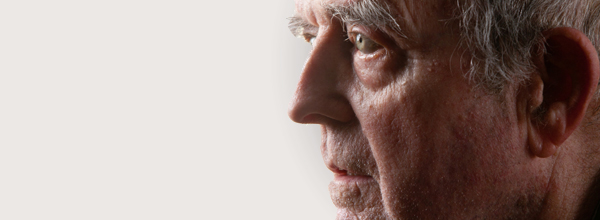How often have you admitted a resident from an acute care setting with a recent diagnosis of dementia and antipsychotic medication orders? Did you ever wonder how a diagnosis was determined when the acute care stay was only 3 days long? It has always intrigued me as there is a distinct difference between each diagnosis, the risks associated with each AND the plan of care!
As with any medical diagnosis, the importance of an early, accurate diagnosis can make a difference in outcomes for your residents. There are many scholarly articles written on this however they focus more on the scientific side of the disease process. The Lake Superior Quality Innovation Network has developed a “cheat sheet” to assist caregivers in distinguishing the differences in an effort to improve care outcomes!
One question on the cheat sheet that I found interesting was the question regarding disorientation. We all know that residents who are disoriented are at a higher risk for falls however did you know that disorientation is not evident in residents with dementia until later in the disease process? That surprised me because in my experience most residents with a diagnosis of dementia appeared to be disorientated!
That said, the attention span of residents with dementia are not characteristically reduced until late stages. When we assess a resident for fall risk we often determine whether they are able to retain what we are teaching them. This cheat sheet indicates that residents with delirium have a strikingly short attention span and residents with a dementia diagnosis have a normal attention span. Interesting! So when you develop your fall risk plan of care for a resident with dementia are you still saying they have the inability to retain information due to a short attention span?
The other area of interest was “are there any change in sleep/wake cycle”? So why is this important? There are many recent studies that have shown that disturbing the sleep cycle increases a resident’s risk for falls. Why? Because the REM cycle that we hear about so often is even more important than we previously thought! This is the time during sleep that the resident has a sound/undisturbed/dream state of sleep where they are truly “rested”. If this cycle is disturbed, their sensorium can be affected during the day. This makes total sense when you look at this cheat sheet as residents with any of the three diagnoses (delirium, depression or dementia) all experience disturbances in sleep cycles! Wow, that is fascinating as it is the only symptom that presents consistently in all three diagnoses.
So what do we do about sleep disturbance? There is a lot of discussion on this and the bottom line is to ensure good sleep hygiene by promoting an environment that supports it. Some ideas include:
* Use night time briefs so that residents don’t need changing during the night (remember, you not only disturb the resident being changed but any other residents in the room).
* Use of red or blue flashlights for bed checks (versus white lights). Studies have shown that these types of lights do not disturb the sleep cycle.
* Bedtime rituals. These are very important, not dissimilar to your routine, brush your teeth, wash your face, say your prayers, etc.
* Do your residents always go to bed immediately after a big evening meal? Consider serving the main meal of the day at midday and offer a lighter meal, i.e., soup and sandwiches in the evening.
* Wake cycles – if a resident is awake during the night, try to determine the reason. If they worked midnights their entire life, don’t force them to sleep at night, adjust their sleep schedule over a period of time to decrease daytime napping.
* Lifestyle choices. Determine if the resident always had a cup of cocoa or a glass of wine before bed. Of course you would need a physician order but it might be worth investigating.
Remember, any resident diagnosed with delirium, depression or dementia are at a greater risk for experiencing falls with significant injuries. HealthCap Risk Management Services and QA Reader have some great tools to assist your caregivers in identifying risk prior to an event. Please contact us if we can assist in improving outcomes in your center and access the Cheat Sheet tool at the link below!
https://www.lsqin.org/wp-content/uploads/2017/01/differences-delirium-depression-dementia.pdf
